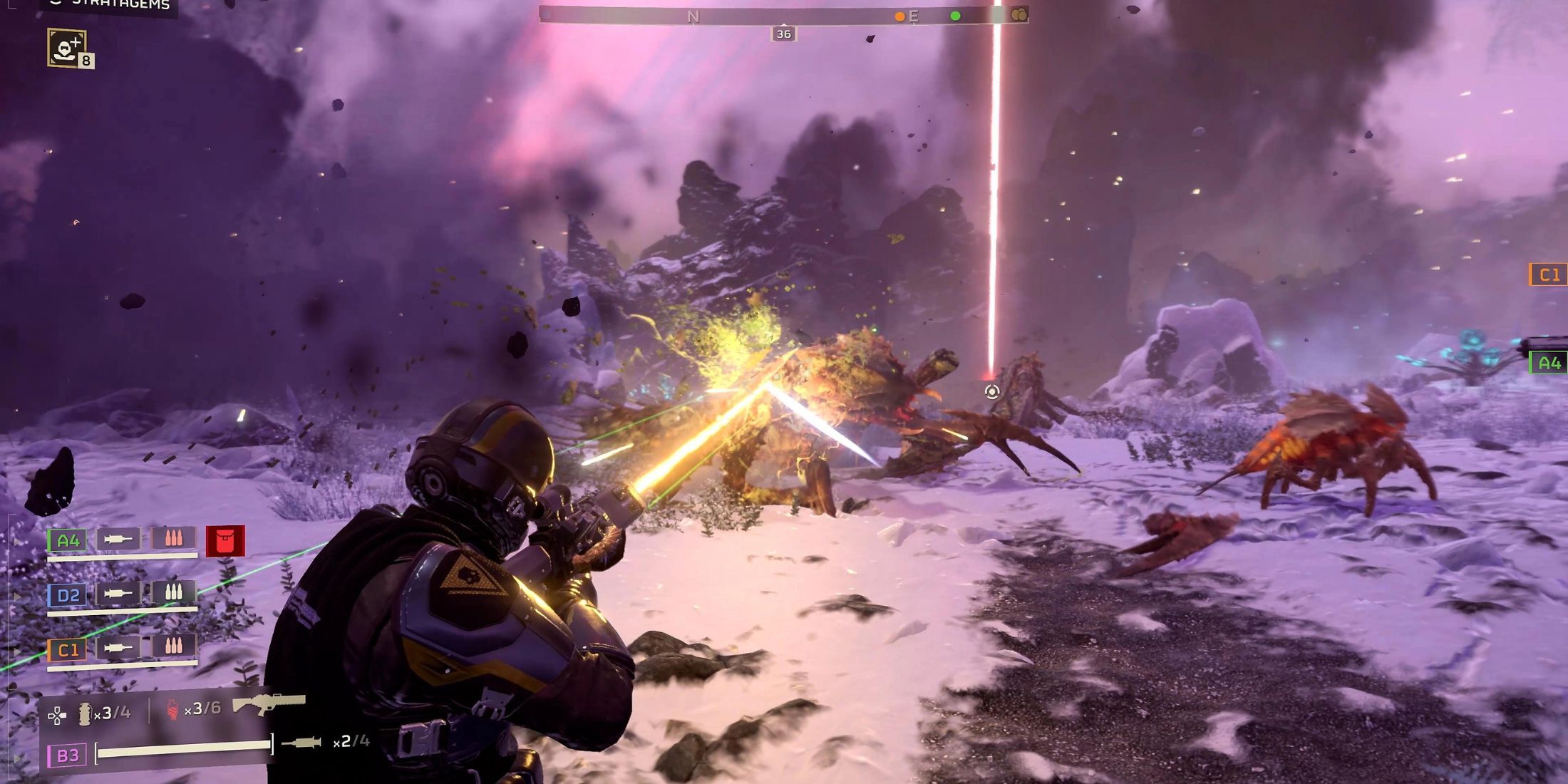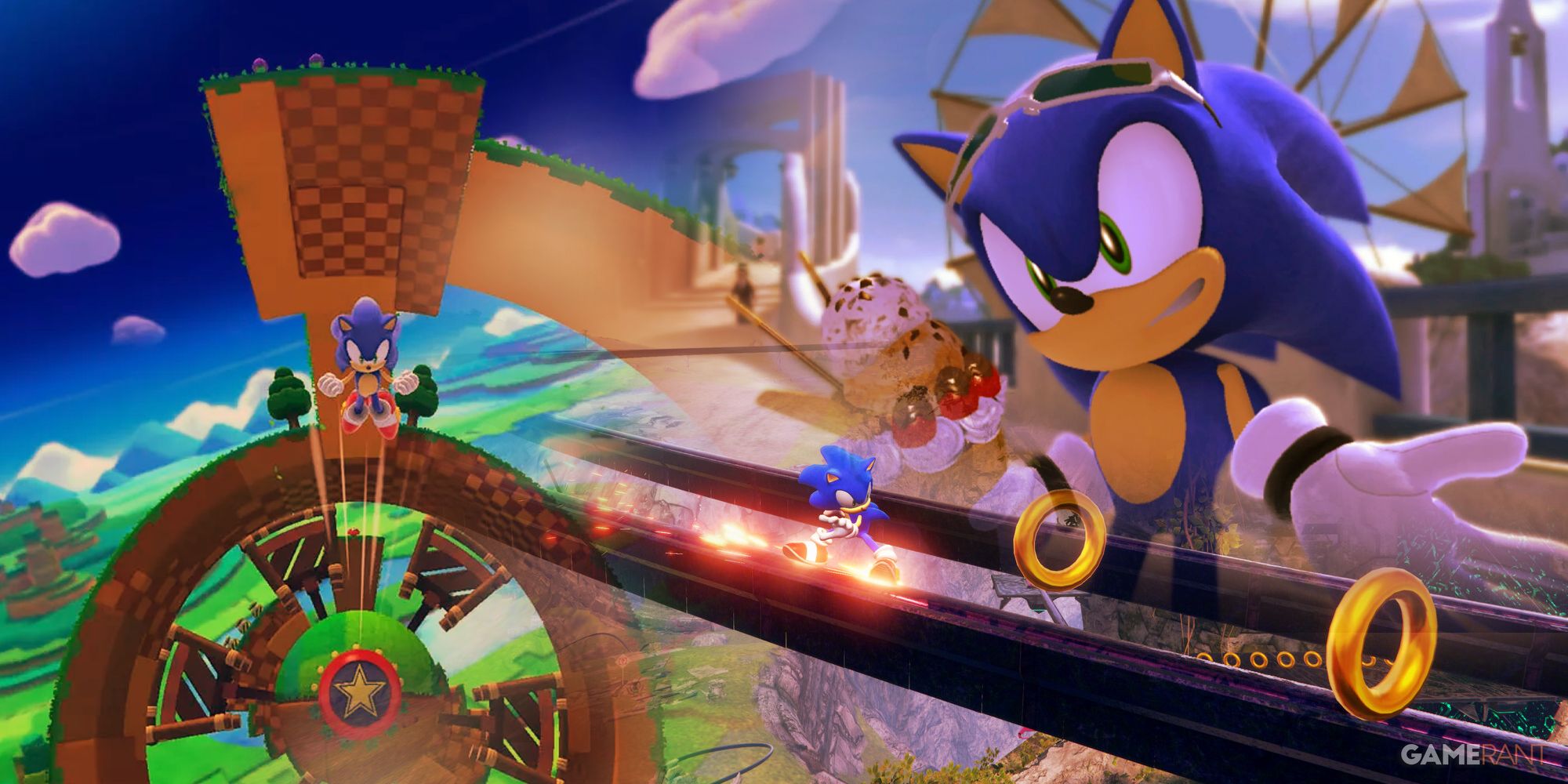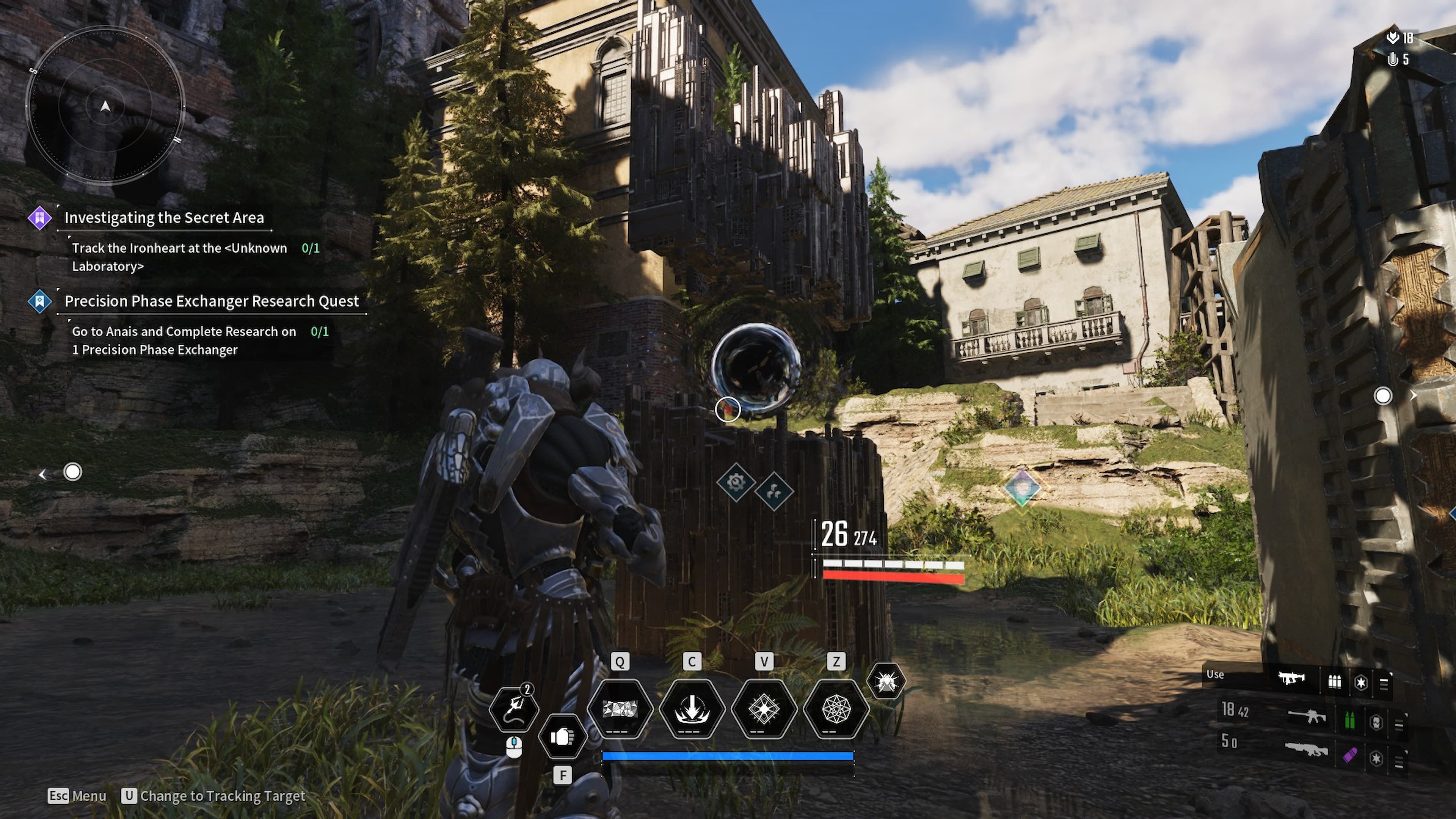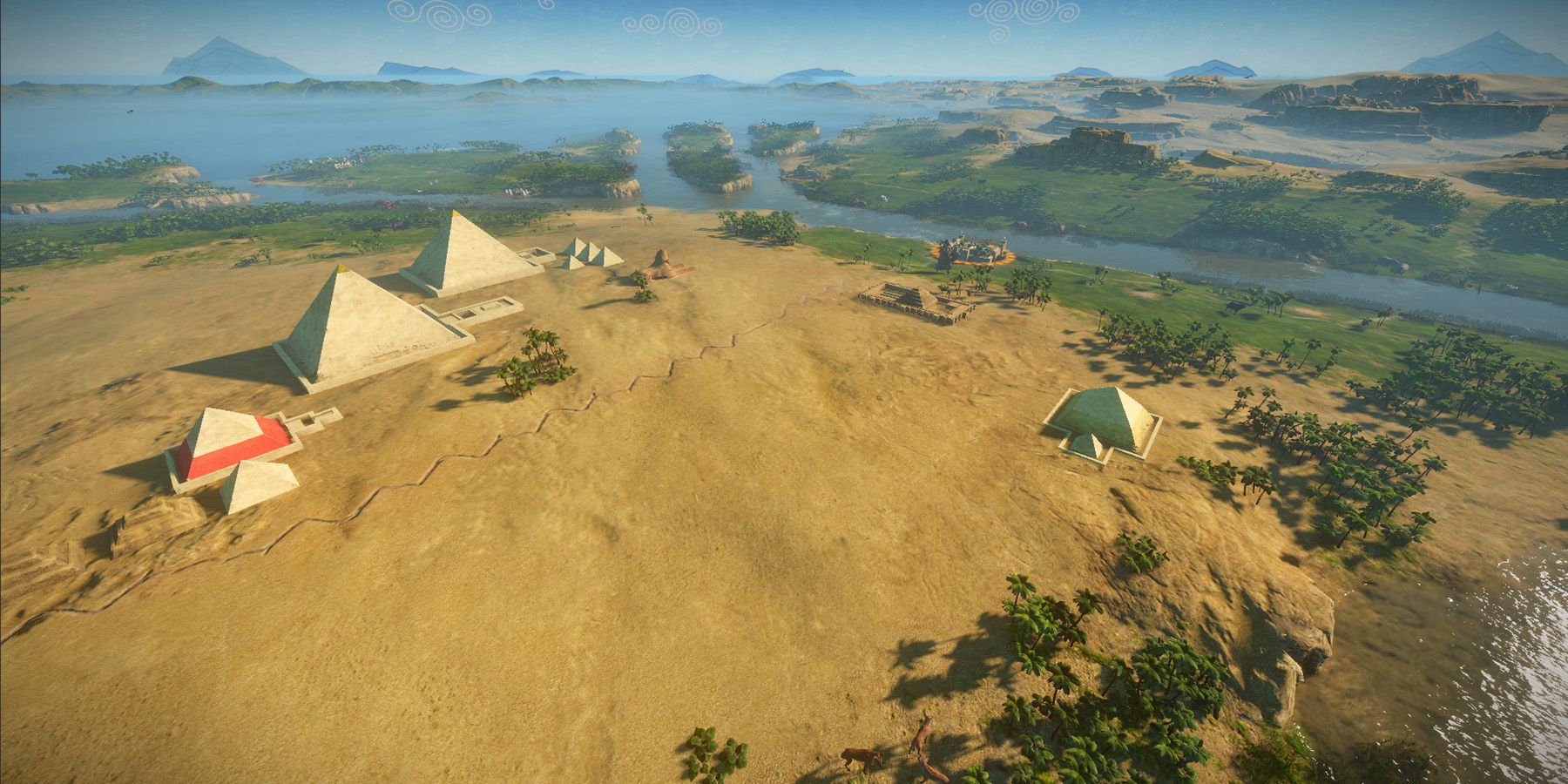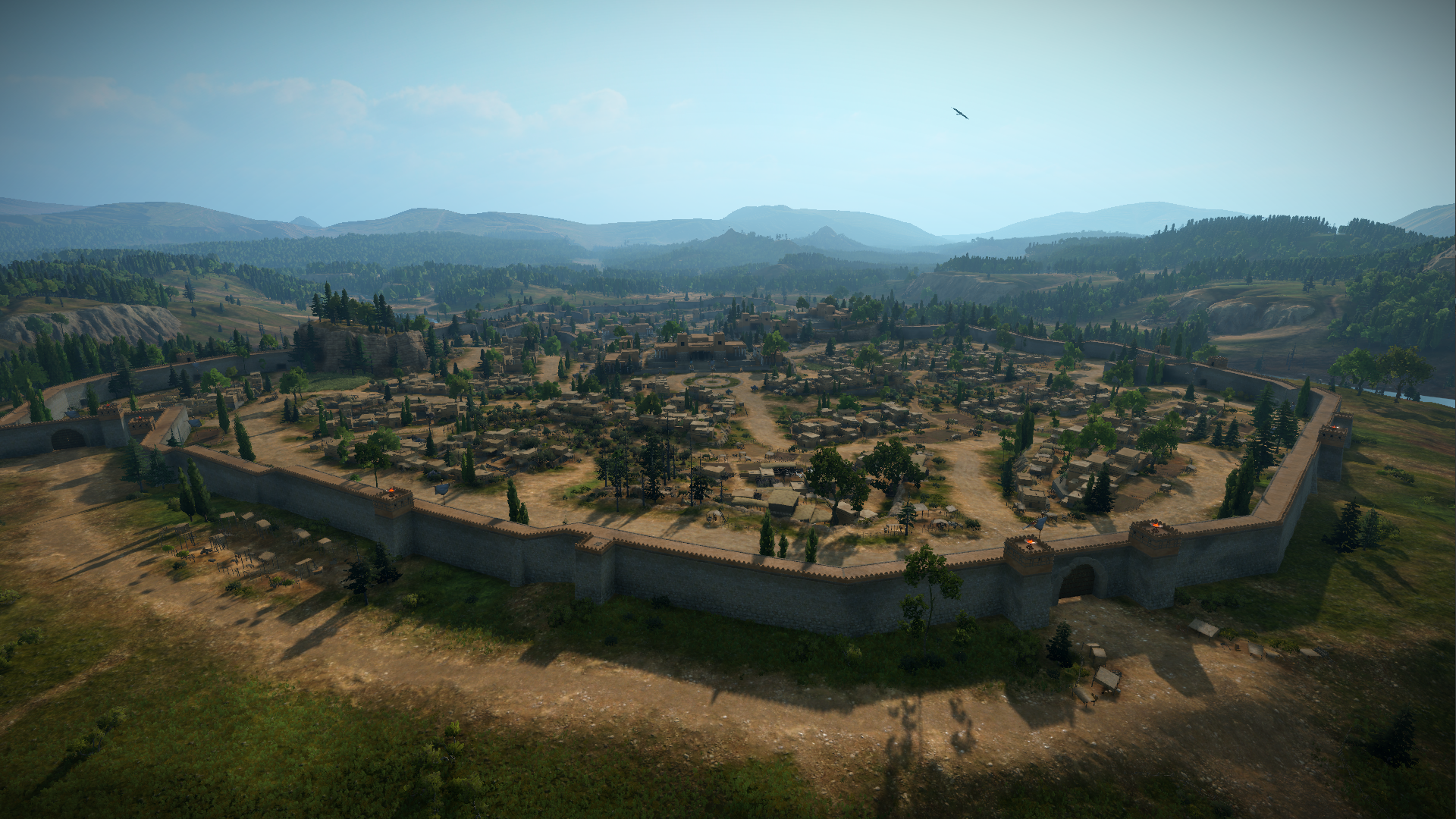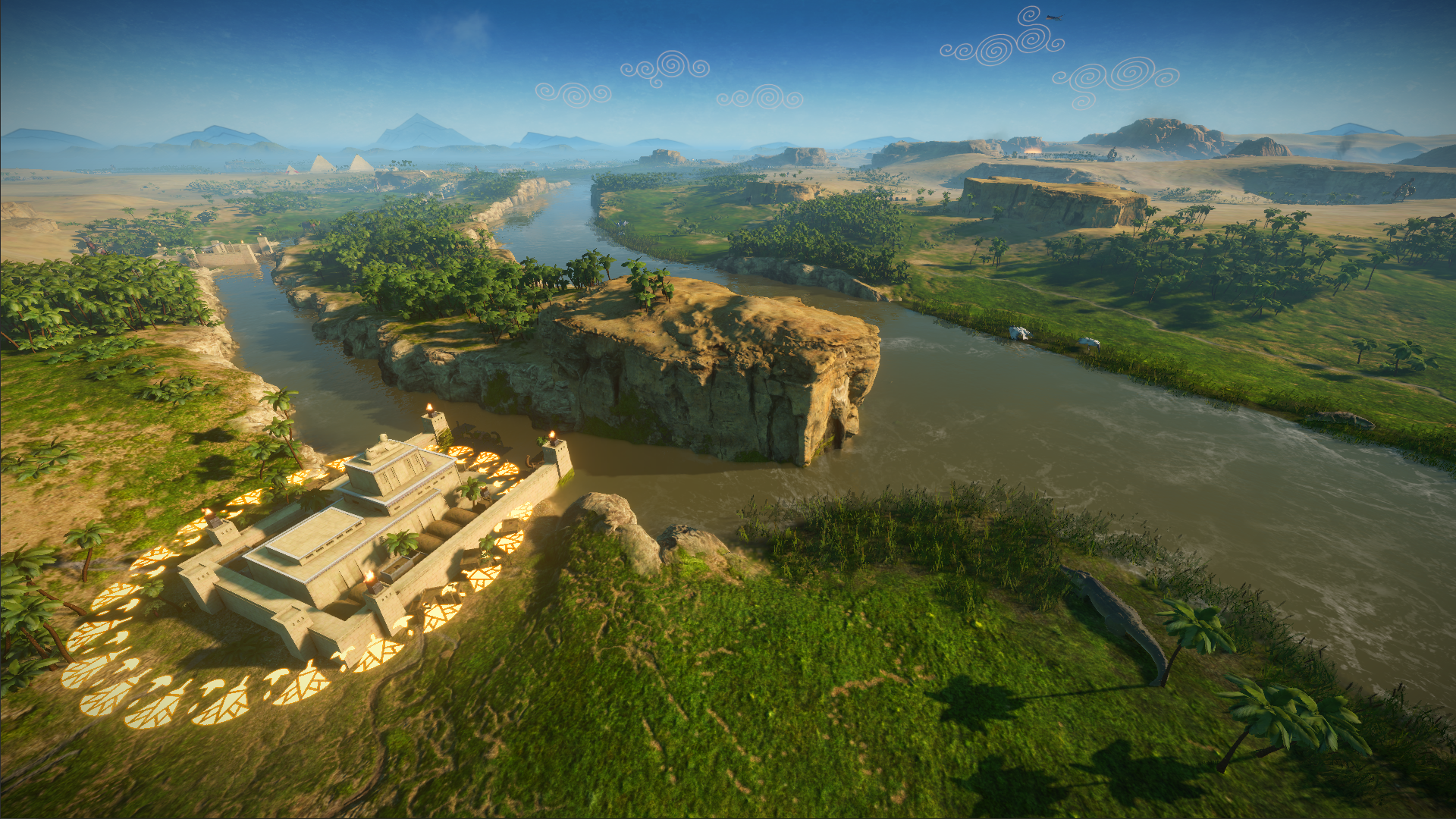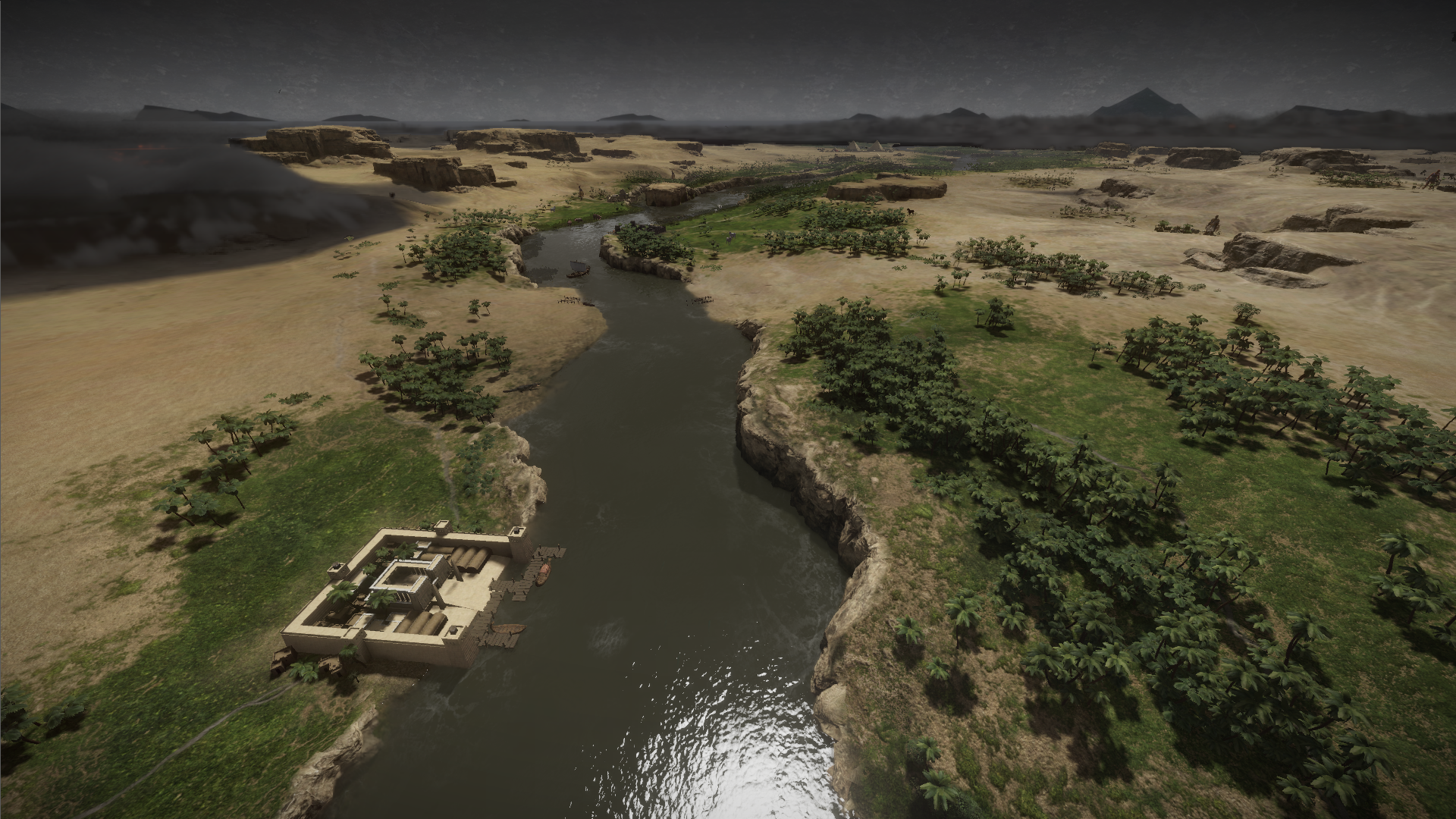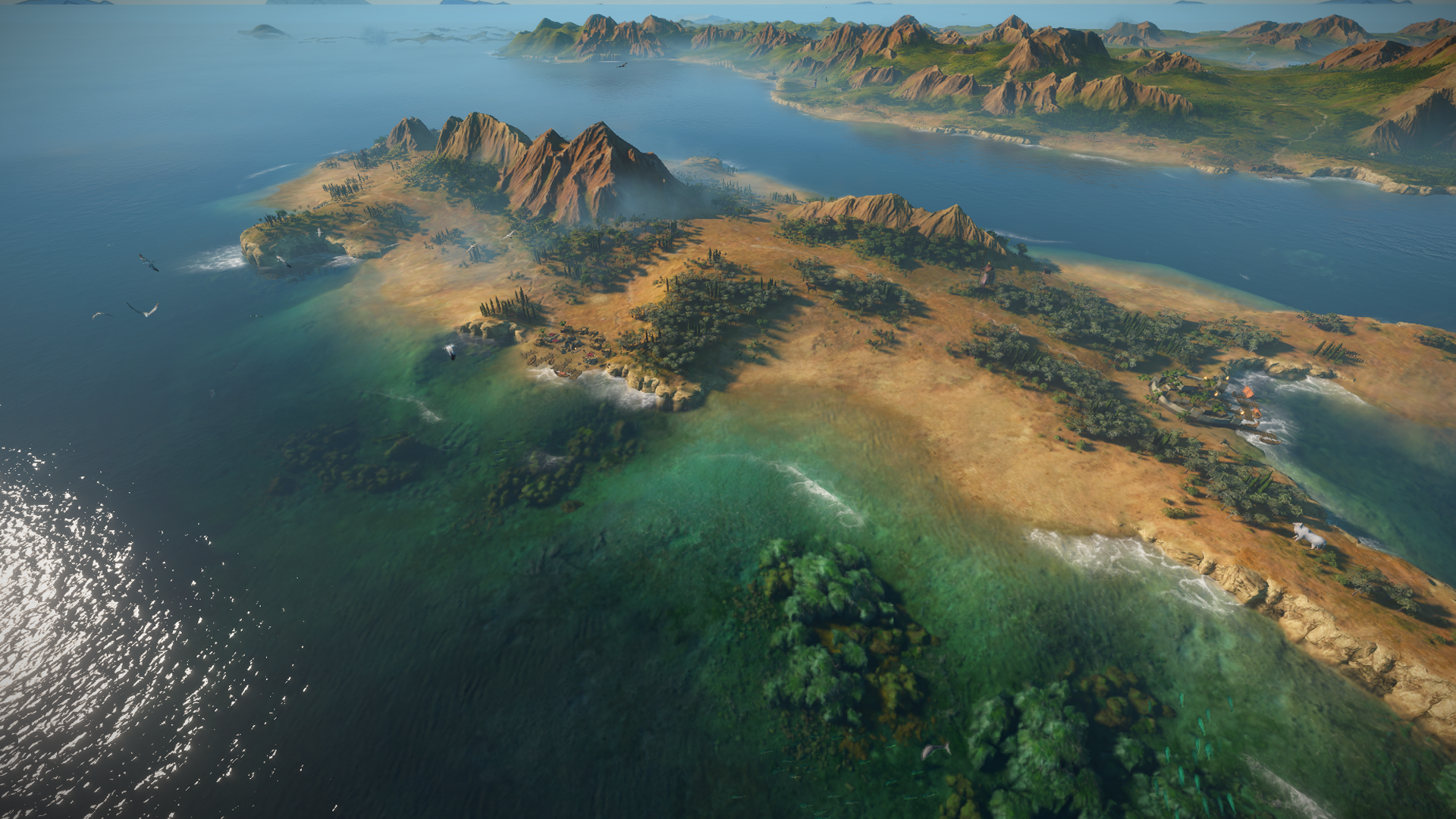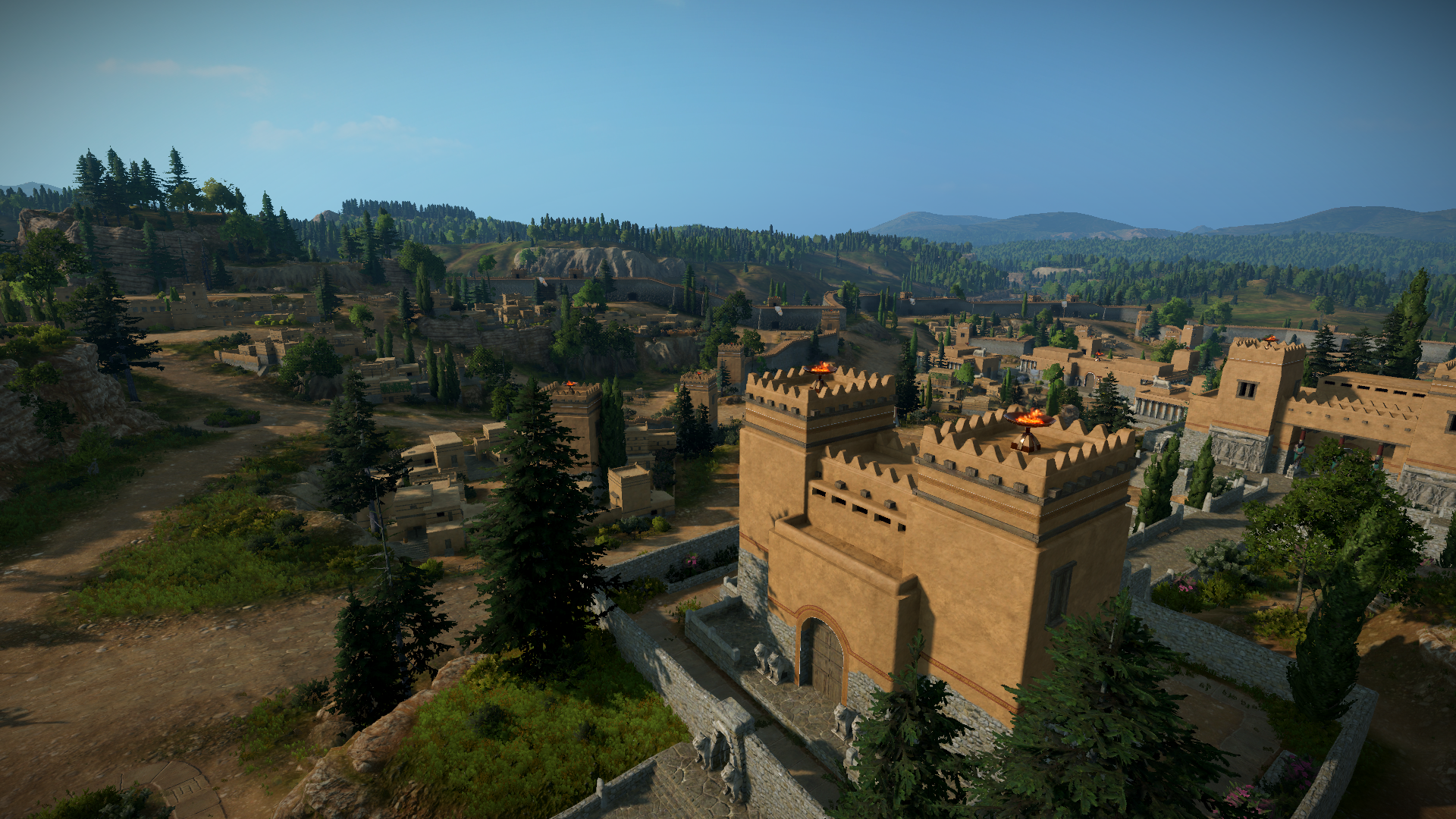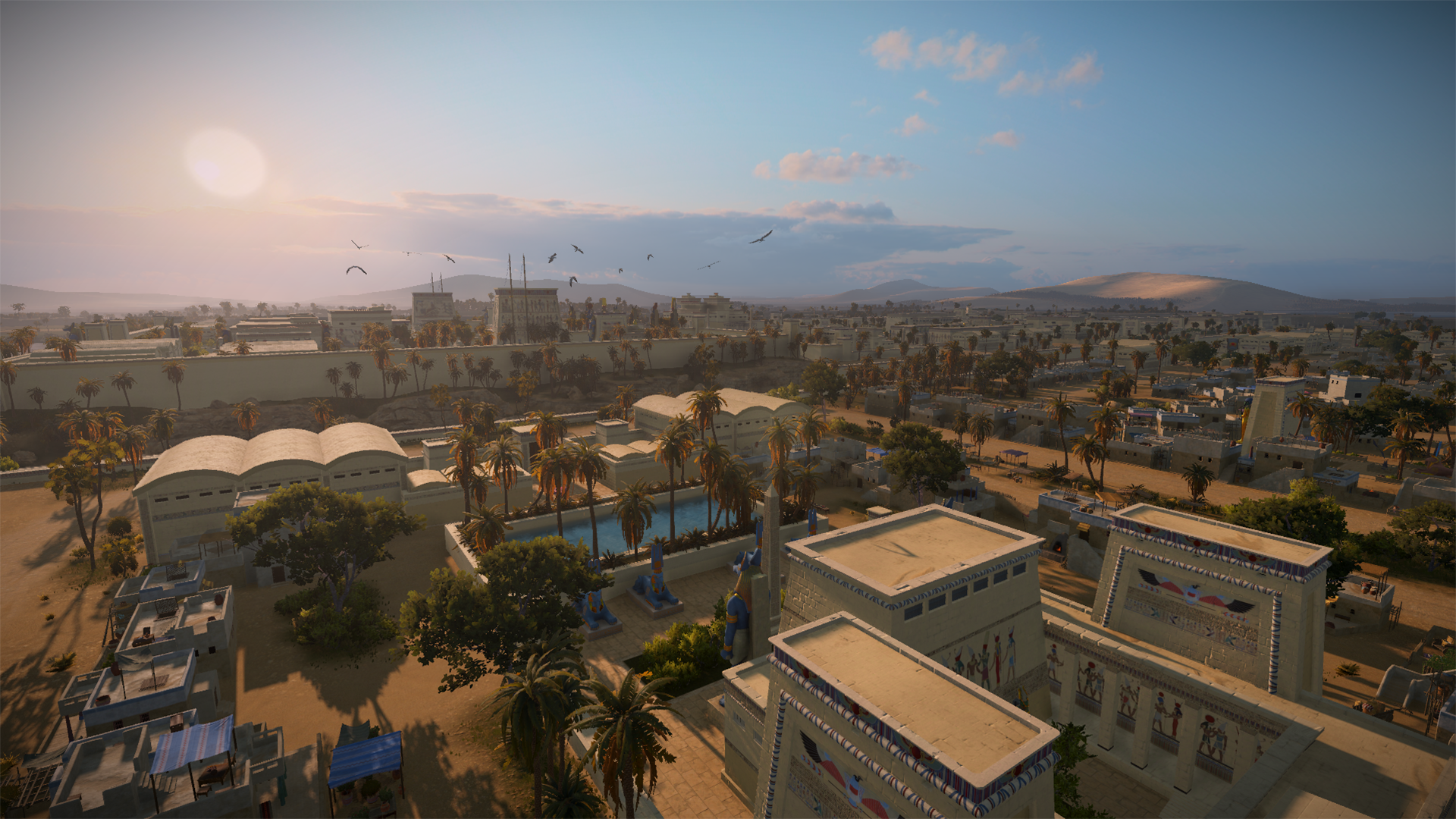While Total War: Warhammer 3 may have a lengthy roadmap ahead of it, Creative Assembly is preparing to launch anotherTotal War game next month. Total War: Pharaoh will be bringing the series to the Bronze Age collapse for the first time and will be introducing a plethora of new features to help reinvent the formula. It seems like it should have almost everything that fans of Total War could want, and it should be made even better by the sandbox campaign that is included.
After playing through 50 turns of Total War: Pharaoh's campaign, Game ZXC had the chance to talk to Lead Campaign Designer Aleksandar Georgiev to discuss everything the mode will offer. We discussed how the studio translated the Bronze Age collapse to Total War, the new game-changing features that are being introduced, and how the studio is ensuring it is truly a historical sandbox. The following transcript has been edited for brevity and clarity.
Q. For our readers, could you just tell me a little bit about who you are and the campaign mode in general?
Georgiev: I am Aleksandar. I'm the Lead Campaign designer of the project. My main responsibilities in the game are connected to the mathematics behind the game, the balancing of systems, and of course, supporting the team. We are presenting to the player, in our mind, a fully historical game about the Bronze Age collapse. We feature three major cultures in Ancient Egypt during the time of the Bronze Age collapse. We also feature the Canaanite part of the map and also the Hittite Empire.
There are a lot of things that are going to happen to the player in our campaign. We wanted to represent the collapse of the Bronze Age empires as realistically and vividly as possible through the medium of a game and especially the medium of a Total War game. And we also wanted to represent not only the collapse of the world, but also the turmoil times that were happening to the Egyptian factions and the Hittite kingdom as well. So, we have this multi-layered type of disaster and problematic time period. You have those empires, which have their internal struggles. Both the Hittite Empire and the Egyptian Empire during this period of time had their civil wars and struggles for power. And this happens in the background within the context of a larger disaster that concerns and affects the entire world.
The player starts as a small player on the map; it's a little bit of a rags-to-riches story, if you will. They will have the opportunity to grow not only in size and power, but they will be able to join the political systems of the empires. They'll be able to join the court, they will be able to participate in civil wars, and change the sitting pharaohs or the sitting great king. In time, they can become themselves the supreme ruler of a large portion of the map, and at the same time, be prepared and be able to withstand the huge waves of Sea People that are coming and washing over the shores of the Mediterranean Sea. So, it's a tale of challenge. It's a tale of dark times, but it's also a tale of possibly a little hope and a tale of survival.
Q. Besides the setting, what is the one major thing you would say sets this campaign apart from the other Total War campaigns, because Total War has had a long history of campaign modes?
Georgiev: Well, Total War as a franchise is a very powerful and addictive game. With this one, we are representing a very interesting and for the first time such an in-depth period of history. The collapse of the Bronze Age is something that fascinates many people and to dive into this period was not only a challenge for us, but it was a very interesting experience. How do you represent a period that wasn't touched upon so far? In terms of gameplay, we wanted to create a fully historical game, which presents to the player the essence of Total War, the fun of Total War.
We ourselves, the designers and the developers of the game, are fans of Total War and huge fans of history. So, when we were creating this game, we were looking to create new and exciting systems and mechanics that will give justice and represent in the most appropriate way the periods and the awesomeness of Egypt. But at the same time, we wanted to revisit some of those game mechanics that make every Total War great. So, it's a combination of new and reimagined old things that we all think will make Total War great. When the player plays our game, we hope that they will experience an amazing journey during an amazing time, but with the new systems that we create, we hope we will make the gameplay very interesting and very replayable.
One very important thing, we are creating this game with the concept of a sandbox. We wanted to give the player a lot of freedom in how they create their destinies. For example, we wanted to represent the historical reality but also wanted to give the player the ability to recreate history as they see fit or as they can. For example, we know that the Egyptian factions like Ramesses or Seti were historically playing their roles within Egypt, the Egyptian empire, but with our game should you desire so, and you have enough good strategy behind your back, Ramesses can become the Hittite King. This is something that our game allows. The gameplay around the court, the gameplay around the ability to challenge sitting pharaohs and great kings, and become yourself a pharaoh allows the player to not only recreate the history as it was, but also to invent history in any other way.
Q.So, you mentioned sandbox gameplay which kind of goes in line with the campaign customization features you guys are introducing. Could you go just a little bit more in-depth about how much control you're giving the player with these features?
Georgiev: Yes, the idea behind the customization feature was really to increase the replayability of the game as much as possible and also to provide the player with the ability to customize their own experience as they would like. So, if we can talk about them, we can possibly separate them into two major categories in terms of what the player can do. On one side, the player can change the game a lot. Our aim as developers is to provide the experience that we envision incorporated within the default difficulties of the campaign you know, easy normal hard veteran, etc., but with moderate difficulty settings, some of them are so strong that it kind of becomes a different game.
One of the, if I can say wildest, difficulty setting is the randomized start position, which means that if you choose to play like that Ramesses can start in Hattusa, and things are much different. But this will break the historicity, this will break the immersion as we envision it, but we will allow the players to experience different settings and test themselves in their different play styles.
But the other category, which I think is very, very important, is the fine-tuning that those settings allow. Usually when we create the game, we envision how we would like the player to experience the progression of the campaign and everything. This is our presentation. This is how we see the time period; this is how we propose the player play the game. But there are so many different styles, some players are more aggressive, and some players prefer more passive expansion. So, with minor changes here and there, for example, a little less aggressive Sea People or a little more money in the treasury, a player may tailor their experience to a much greater extent and be happy with the game.
Q. You're introducing weather effects to the battles, we got to see that here and in the last build I played. How much of an effect are those going to have on the campaign side of things? Is it going to affect other parts or is it solely just the battles?
Georgiev: At the moment, the weather is featured only in battles. On our campaign map, we have seasons around the Nile, which affect, to a certain extent, the economy of the region. We also have a day and night cycle, which contributes to the immersion. But on the campaign map, we have a visual representation of the collapse. By introducing the pillars of civilization system, which describes the collapse of the Bronze Age, part of the system introduces visual changes in the world. So, when the world is in prosperity, it's bright and sunny. But once it goes into cultural collapse, it becomes much darker, sandy, and gloomy. These are the things that we introduced in terms of visual representations on the map.
When it comes to effects, the pillars of civilization introduces more frequent disasters across the map during the periods of crisis and collapse, which is generally the reality of the time during those periods. The disasters and other types of negative events, such as plagues and droughts, were prevalent. The system also introduces this to the map. And finally, the system increases the potency and the power of the Sea Peoples and the normal peoples. So, the player experiencing this collapse of civilization faces ever greater challenges.
Q. You mentioned the pillars of civilization, we got a brief look at that in the build. Since it's short, you only get to do so much with it. But I'm just wondering, where did that idea come from? and how difficult is it to manage?
Georgiev: Well, let's start from the intent. We wanted to represent the Bronze Age collapse. We know that the world just went into darkness and trade routes collapsed, the cities went into crumbles. It was a chaotic and bad time. So, how do we represent something that affects the entire world? We envisioned numerous cities on the map which we see as the pillars of civilization. We think that civilization is concentrated in those pillars, those great cities, the cities that have the great temples, the cities that have the libraries, the cities that have the government.
So, if we have those settlements around the map, there are 19 at the moment, they keep the civilization on their shoulders. If one of those settlements crumbles, part of the civilization drops a little bit. This means that the player will never be in full control of the system. What we aimed at is for these systems to be manageable by the player, but also to represent the enormity of the events. No single faction during this historical period was able to stop the collapse by itself. Some of them didn't survive it. So, we wanted to represent this larger-than-one-faction enormity of the event.
At this point, the player will be able to bring or to keep the state of civilization either in crisis or even bring it back to prosperity if they manage to hold enough of those settlements and fully develop them. Fully developed pillars of civilization bring many civilization points. So, if the player holds a third of the map, they will be able to unilaterally bring the world back to prosperity. There is also an ancient legacy that will allow the player to concentrate their focus on only those centers. They can focus their attention on defending them a little more, and never allow the civilization to go to collapse. But something that we wanted to make sure that the player experiences is the struggle. This was a period of struggle and crisis. So, even with those tools, it's going to be very hard. It's going to be possible, but there are so many systems that the player can use to survive and then go and prosper after the waves.
Q. The pillars of civilization are going to be a big feature, but so are the deities you introduced. You have deities that you can pray to and pledge soldiers to. I was just wondering, how much of an effect will those have? Is it going to be one of those things where if you don't choose the correct deity, then it's game over? Or can kind of mold them to your playstyle?
Georgiev: More like the second one. First of all, we should keep in mind that we are representing a historical period with a lot of gods. For example, the Hittite Empire had about 800, I think the Canaanites beat them with 200 more. There was a lot of diversity, so we wanted to represent this aspect of this time. We also wanted to make sure that the system is impactful and useful for the player. We have, I believe, 19 Gods on the map, and we wanted to make sure that the players will be able to play around them and still have fun. That's why the system provides for the player to incrementally unlock and discover new gods.
Gods are connected to every ounce of the map. So, if you start in Egypt, you will have access to a certain amount of gods, but once the player starts expanding, entering new realms, new gods will become available to them. The player will be able to choose to worship only three gods at a time. It will always be a matter of combination of which effects are best for the player. So, we were looking for more strategic choices in this manner and also to introduce a little more immersion because gods become available to join your Pantheon only when the player meets certain people and a certain culture.
From this perspective, this system is important for the player to succeed. It has several aspects, but it provides strong enough effects, some of them economical, some of them military, to support and help the player to have a successful campaign. One other aspect here is that the system is connected with buildings in the settlements, but also the player will be able to construct shrines on the map using the new outposts system that we introduced. So, the way the player worships and gathers better effects from the system is to construct monuments or to construct shrines on the map. And we think this is kind of representing what actually happened back then.
Q. So, you mentioned the outpost feature, and I was just how game-changing will the different outposts be? Do you have to be more selective and pick and choose?
Georgiev: Our idea was to expand on the interesting part of the map, but also to expand a little more on the strategic aspect of the map. We wanted to make the gameplay using the map more interesting. Our map has a pretty good scale, the distances are not small. Introducing those additional elements not only allows for a two-dimensional strategic play, but also allows us to kind of introduce this combination of gameplay which is not only centered on one location, which is the settlement where you have a certain amount of plots of slots.
So, what the player can do is pick and choose between different options and work around those. Introducing this additional layer of outpost, which is separated from the settlement, all of a sudden the player has the ability to strategize a little more and also the responsibility to protect their constructions outside the settlement. We introduced several outposts which cover some economic aspects. We have an outpost that increases the production in certain regions, but also, we have outposts that provide great strategic benefits; specifically, one of those outposts will allow the army not to suffer attrition in the desert. And the desert is a factor not only in Egypt, but in Canaan. So, using those outposts becomes a natural part of the gameplay of the player. The player thinks about how to develop their settlements, but also, they have the ability to outsource some of the things to the outposts. But the outposts also carry some unique strategic advances. This is two systems combined into one.
Q. So diplomatic relations play a big part in strategy games as a whole. Are you doing anything particularly different with the diplomatic relations aspect of the game here? Or is it just pretty standard?
Georgiev: This is an interesting question. Diplomacy is a standard feature, but within Pharaoh, we have the vassalization option, which is big during this period of time. So, vassals are a big feature and a big part of the game, especially for the Hittite factions. Their legacies are connected with vassals, but vassals are also part of the Egyptian culture. So, we have the vassalization options, we have the confederation options, which is also something one may say is normal for Total War.
But also, we have this additional option, and it's part of the new system, the power of the crown. Once the player becomes the Pharaoh, they get the ability to annex whichever territory they wish, and the only requirement is the size of the territory. The player using this power to its maximum ability will be able to annex three or four regions, I believe three regions can be easily annexed without any further questions just because you're the Pharaoh and you have this enormous power. So, when it comes to diplomacy, we're aiming to balance those types of approaches and communication in terms of consolidation of your power with other factions.
We also paid attention to the diplomatic screen and how factions deal with us. We wanted to make sure that we balance properly the challenge that the Sea Peoples provides, and also the challenge of the AI factions that play with the player. And we also wanted to make sure that diplomacy is used appropriately when it comes to trade and resources. We wanted to make sure that diplomacy is a valid way to help your economy, but hopefully, not the only way. There are so many other ways for the player to prosper.
Q. Is there any aspect of the time period that you guys really wanted to include in the campaign, but you just had to cut it for gameplay reasons, or it just didn't fit what you were trying to build here?
Georgiev: This is a very good question, and I'm not sure if you're going to like the answer because it's not very explosive. When we started researching Ancient Egypt, the picture that we found was amazing and fascinating. This is a civilization of prosperity, of sophistication, and mainly of peace. Egypt was created and prospered around the Nile surrounded by miles and miles of sand, which was a natural defense.
So, they had many, many, many years and even millennia to develop a very interesting culture, but not really militaristic. And when we had all those gods that we wanted to incorporate in our gameplay to represent society, we had an interesting challenge. Which are the warrior gods? In other cultures, it's easy to pinpoint every other culture has a lot of them, but in Egypt, we know that Seth is kind of angry, but he's not really a warrior god. If we hit a creative challenge, this was one of those. I think we've done a great job representing the gods and doing justice to the Total War feeling and essence of the game. But some of those elements were always interesting challenges for us.
Q. For my last question, is there anything else you'd really want to share? Maybe something I haven't asked you about that you've just been sitting here thinking 'why can't you ask me this question?'
Georgiev: If we're talking about what is really important for us at the moment, we were working on this game for a lot of time, and we wanted to make sure that we create this sandbox experience that allows the player to live their fantasies in many ways. We aim at replayability, we introduce different ways of how the specific mechanics are used by the player. For example, the ancient legacy system allows the player to choose from several legacies. So, Ramesses, for example, can have replayability much greater than in other cases.
We wanted to make this experience start from the beginning, but then you have one struggle, then there is another struggle. The events happening in the campaign are not repetitive, the player has things that happen to him in an interesting and different way beyond turn 320. So, what we would really be happy about would be if we managed to create a game that is fun, which has the feeling of one more turn, and which provides the player with great replayability, so players can experience and enjoy the game for a long time.
[END]
Total War: Pharaoh will be available for PC in October 2023.

